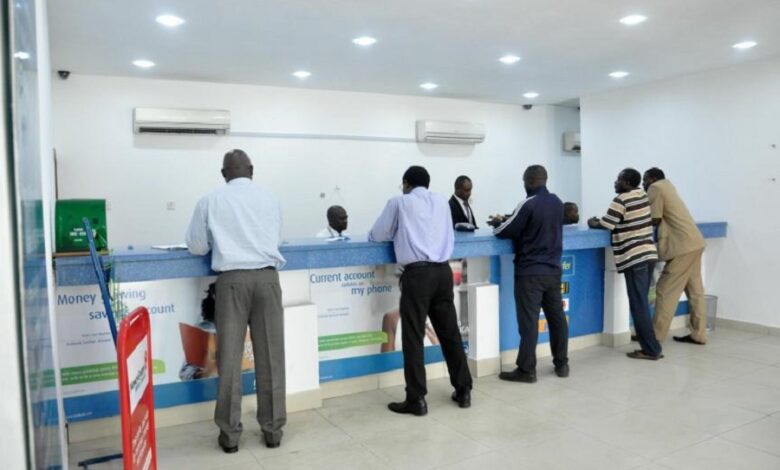USSD Is The Most Popular Digital Banking Platform In Nigeria- Agusto & Co.

The survey from the Agusto & Co Consumer Digital Banking Satisfaction Index for 2021 has shown that USSD banking is the most popular banking platform among Nigerians. The index which features a survey and a scorecard report that USSD banking makes up about 35% of the frequently used digital banking platforms. USSD banking is followed closely by mobile banking which is used by 31% of the respondents.
Agusto & Co, a Nigerian-based firm, annually conducts the Consumer Digital Banking Satisfaction Index to examine consumers’ preferences for digital banking platforms hosted by Nigerian banks. The 2022 edition was the fifth edition of the survey, and it covered the top 15 banks in Nigeria based on customer deposits as of December 31, 2021.
Also Read: Five obstacles to MSME financial inclusion in Nigeria
Facts About the Survey
This is the distribution of the respondents by banks. GTBank accounted for 17%, First Bank accounted for 16%, Access Bank accounted for 14%, UBA accounted for 10%, Zenith bank contributed 9%, EcoBank accounted for 5%, Fidelity Bank accounted for 5%, FCMB accounted for 5%, Union accounted for 4%, Polaris accounted for 3%, Wema accounted for 3%, Stanbic IBTC accounted for 2%, Sterling accounted for 2%, KeyStone accounted for 1%.
Funds transfer made up 25% of the usage of digital banking, it was followed by bill payment which made up 21% of digital banking usage, and airtime and data top-up which made up 19% of digital banking usage. Account balance checking made up 10% of digital banking usage, bank statement generation made up 6% of digital banking usage. Other digital banking transactions included account opening, loan applications, and airline ticket payments, among others.
53% of the survey respondents were male, while Gen Z and millennials made up 43% and 40% of the survey respondents respectively. Also, 36% of the respondents were in Lagos, 14% were in Kano, 13% in Kaduna, 12% in Abuja, 11% in Port Harcourt, 8% in Ibadan, and 6% in Enugu.
Customer Feedback Review
Based on the report from the survey, most respondents were satisfied with the digital banking platforms of their respective banks. 36% of the respondents expressed Good as their level of satisfaction with the digital banking platform, and 31% of the respondents expressed Excellent as their level of satisfaction with the platform. About 1% expressed their level of satisfaction with the digital banking platform as Weak.
Some of the reasons given for the high level of satisfaction include low application downtime, low transaction charges, and timely notification and alerts. While reasons given for the low level of satisfaction include high transaction charges, slow transaction processing time, limited service options, and an unfriendly user interface.
The security of the digital platform was perceived to be good by 35% of the respondents and excellent by 29% of the respondents. 1% of the respondents perceived the security to be weak. And some of the reasons for the perceived low security of the platform include the non-availability of two-factor authentication, not logging off after a long period of inactivity, and a history of security breaches. Despite the high level of perceived security, approximately 59% of the respondents have been victims of fraud on the digital platforms of their banks.
Scorecard of the Various Banks
At the end of the survey, the index included a scorecard for the banks under review. The bank with the highest user experience score was Access Bank which was 94.6, they were followed by UBA with a user experience score of 94.4, and GTBank ranked third with a user experience score of 91.4. Banks like Standard Chartered and First Bank ranked the lowest of the banks with user experience scores of 65.1 and 63.6.
Also Read: 2023 Elections: 40% of Rural Nigerians Will Vote for Peter Obi, Nextier Polls
Zenith Bank, UBA, and Access Bank ranked the highest for the perceived level of security among respondents. While UBA, Zenith Bank, and GTBank ranked the highest for the rate of successful transactions.
Overall, 70% of the respondents were unwilling to switch to another bank’s digital banking platform. However, 66% of the First Bank respondents indicated a willingness to switch to another bank’s digital banking platform.
Impact of the Cashless Policy
In 2012, the CBN announced a cashless policy that introduced a withdrawal limit on the amount individuals and corporations could withdraw. The policy is geared towards developing and modernizing the payment systems in Nigeria, as well as reducing the cost of banking services. In Nigerian banks, the CBN’s cashless policy has significantly impacted the digital drive, as cashless payments are now possible without physical cash, and almost all banking transactions are now done electronically.
As a result of the cashless policy, the volume of financial transactions through mobile devices has been on the increase. For example, the volume of financial transactions via mobile devices grew by 155.8% from N719.4 billion in August 2021 to N1.4 trillion in August 2022.
However, the use of digital banking platforms has not had much effect on the cashless policy, especially with the introduction of agent banking. Between 2017 to 2022, the volume of Point-of-Sale (PoS) transactions rose from N167 billion to about N663 billion, with more than half of it attributed to PoS agents. Despite the popularity of digital banking platforms, cash is still king in Nigerian society.
Financial Inclusion Drive
Even though the rise of digital banking platforms has not significantly caused a reduction of cash in circulation, it has significantly helped the financial inclusion drive. According to the index, “the popularity of the USSD digital banking platform in Nigeria has grown over the years, partly due to the CBN’s financial inclusion drive.”
Also Read The Lunch Hour – Olabode Agusto, Founder, Agusto & Co.
The ability to set up an account or a payments profile without having to go through the burdensome process of queueing at a bank has helped a lot of people become part of the financially included population. For the unbanked and underserved population who live in areas with poor internet connections, digital banking platforms like USSD banking have eased the process of setting up bank accounts.
Final Thoughts
The COVID-19 pandemic introduced a new normal with regard to banking transactions. And much more is still expected as more banks compete for market share. According to the survey, customers still desire more services from digital banking platforms. these services include saving and investment options, branch/ATM finder, chat option with a relationship officer, and bank statement with spending analysis.
The digital transformation of Nigerian banks is an ongoing process and it remains to be seen what the future holds.







